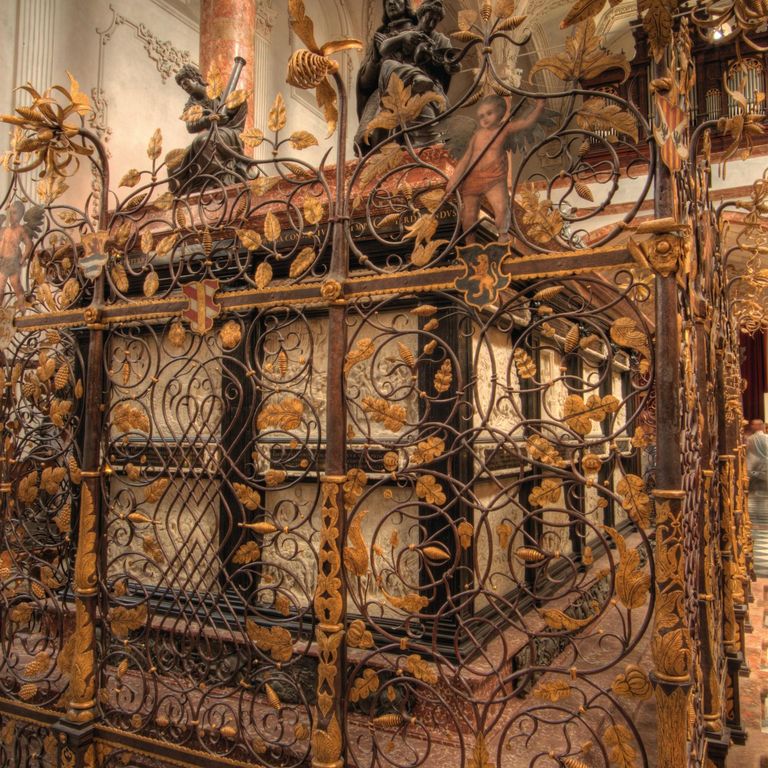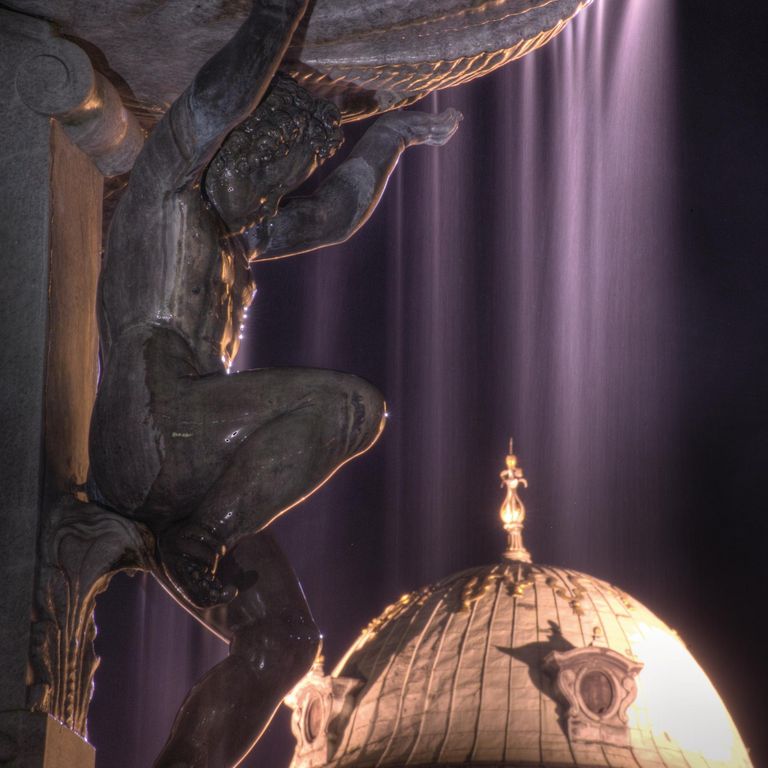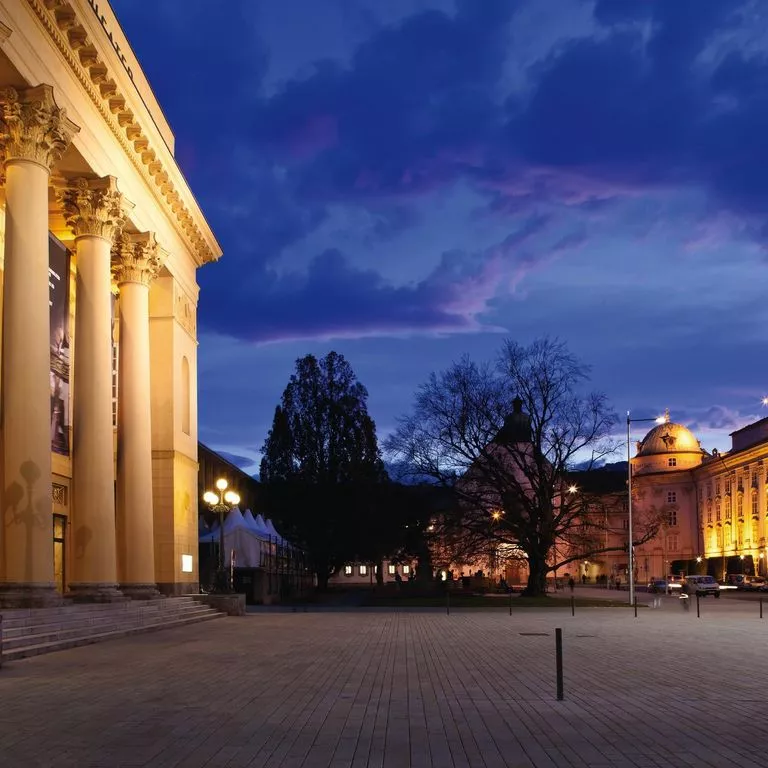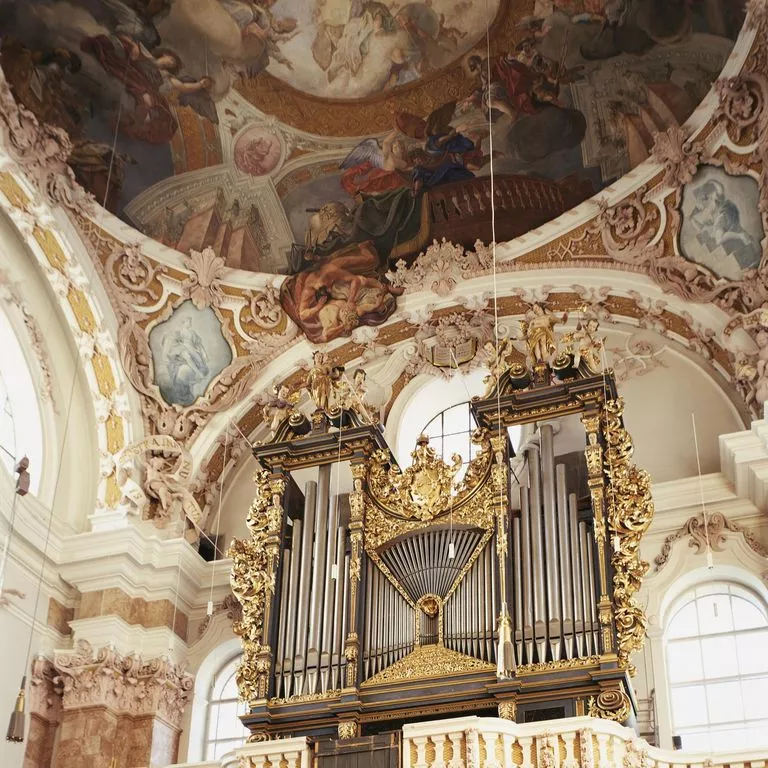HARMONY BETWEEN TRADITION AND MODERNITY
Innsbruck nurtures its musical heritage while cultivating contemporary music. Event organisers and performers take music lovers on a journey back through the ages. Join them in exploring extraordinary worlds of sound with early and classical music, traditional folk music, orchestral music, new music and avant-garde.
No other art form captures our emotions quite like music. It flows through our body, touching our innermost being and caressing our soul. Not every kind of music affects everyone in the same way, but no one can fully escape its magic. From the Festival of Early Music to the Heart of Noise festival, from symphony concerts to promenade concerts, Innsbruck's events, festivals and ensembles weave a tapestry of sound that spans the ages right through to the present day.
WORLD CITY OF EARLY MUSIC
Between the 15th and 18th centuries, Innsbruck was a metropolis of music. During the reign of Emperor Maximilian I, the composers Heinrich Isaac, Ludwig Senfl and Paul Hofhaimer worked at the palace in Innsbruck. Later, archdukes such as Ferdinand II, Leopold V and Ferdinand Karl maintained the famed musical ensembles at the court and established opera as an art form.
Leopold V built the first free-standing theatre north of the Alps. In the mid-17th century, Ferdinand Karl had an opera house built and brought Pietro Antonio Cesti, one of the most renowned opera composers of the time, to Innsbruck.
In the 20th century, music teacher and bassoonist Otto Ulf from Innsbruck revived the music of the Renaissance and the Baroque era. In 1963, the sounds of viols, harpsichords, cornetts, sackbuts and lutes rang out from the Spanish Hall at Ambras Castle: the Ambras Castle Concerts were born.
The International Summer Academy followed in 1972 and in 1976, Ulf launched the Festival of Early Music. Lavish opera productions have been at the heart of this festival ever since and underscore Innsbruck's reputation as a hub for early music in Europe. Venues such as the Tyrolean State Theatre, the Giant's Hall in the Imperial Palace, the Jesuit Church and the Court Church provide wonderful and atmospheric settings for the festival concerts.
THE CITY OF ORGANS
Innsbruck's Court Church is not only home to the larger-than-life bronze "Schwarzmander" statues next to the empty cenotaph of Emperor Maximilian I but also houses the more than 450-year-old Ebert Organ, which can be admired above the western door of the sacristy. The instrument, which was constructed by the organ builder Jörg Ebert from the German city of Ravensburg between 1555 and 1561, is now the largest Renaissance organ in Austria to have been preserved almost completely intact.
It is also one of the oldest playable Renaissance organs in the world and the ultimate highlight of the organ concerts regularly held at the church. At these impressive events, the artistically designed leaf doors of the Ebert Organ are opened and the breath-taking tones of this unique historic instrument ring out into the church, transforming it into a sound box like no other.
Every three years, the international Paul Hofhaimer Prize organ competition attracts talented young organists from all over the globe to Innsbruck. The winners of the contest are granted the special privilege of using the most prominent of Innsbruck's many organs, the Ebert Organ, for their closing concert.
CAPTIVATING BRASS BAND MUSIC
Unlike organs, which can survive for centuries when cared for properly and maintain their heavenly sound quality when lovingly restored, brass instruments have an expiry date. Why? The clue is in the name: after a while, brass begins to show signs of wear, and there is no repair method capable of combating this eventual decay.
During the reign of Emperor Maximilian I, the German city of Nuremberg was the capital of brass instrument making. The ruler's court trumpeter and the instruments used in the Innsbruck court all came from Nuremberg. It wasn't until the 19th century that Bohemian journeymen brought the art of brass instrument making to Tyrol.
Nonetheless, brass band music established itself as a Tyrolean tradition like virtually no other. Its roots can be found in the military bands that enriched the music scene in Innsbruck with their public concerts and coffeehouse performances.
The modern-day Promenade Concerts held in Innsbruck breathe new life into the tradition of old Austrian brass band music, with wind ensembles, brass bands and big bands all gathering to give open-air performances in the courtyard at the Imperial Palace. As they show off their talents, these groups of international musicians fill the atmospheric palace setting with sounds that date back many centuries.
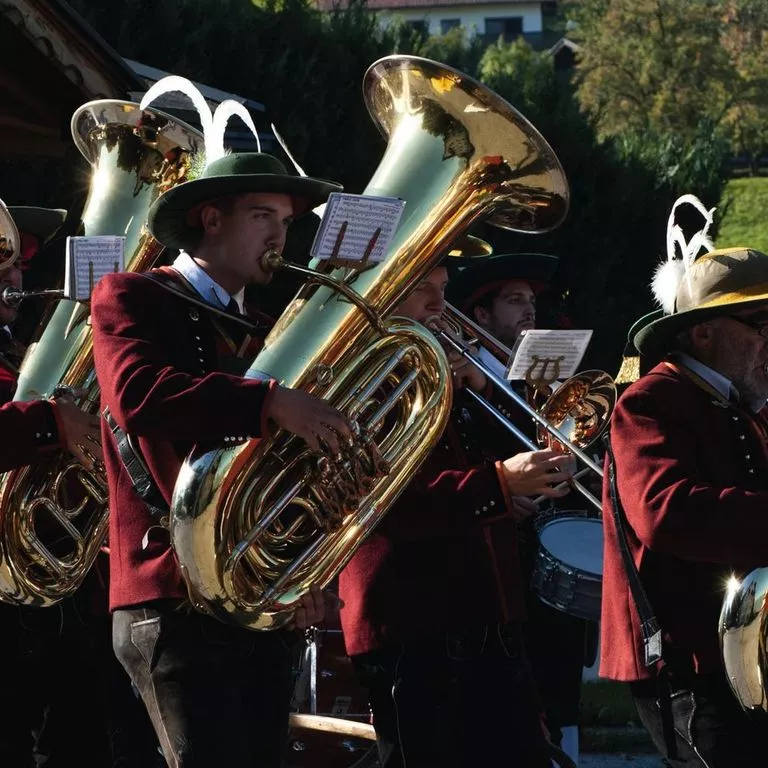
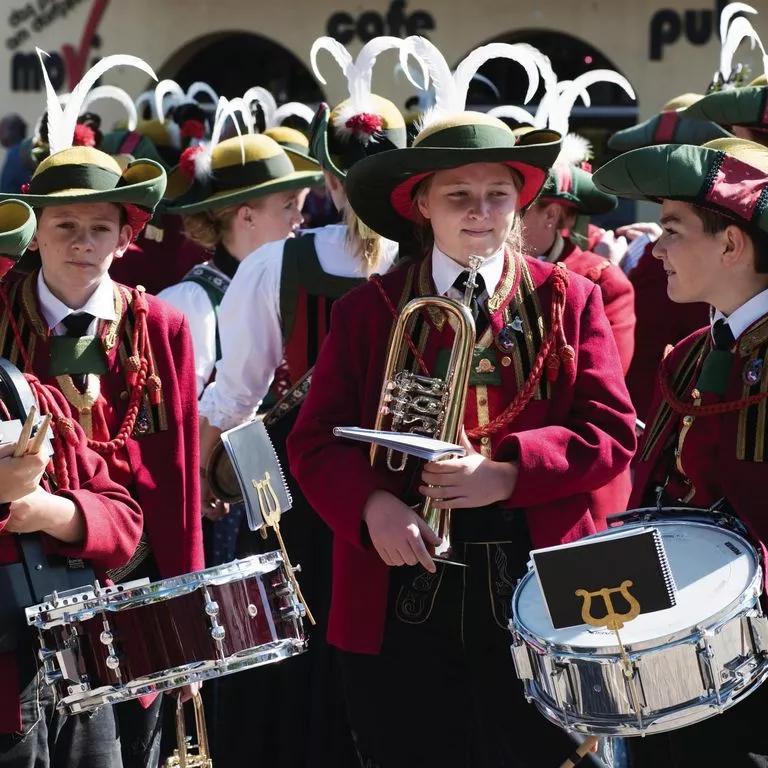
PRESERVING FOLK MUSIC TRADITIONS
Although it was passed down from generation to generation over centuries and firmly established itself within society, folk music was always treated with neglect both as an art form and in academic circles. This all changed in December 1966, when the Tyrolean Folk Music Association was founded in Innsbruck. The association has been dedicated to collecting, documenting, preserving and promoting folk music in Tyrol ever since. In 2018, the Tyrolean Folk Music Association took its place alongside the Tirol Symphony Orchestra and the Department of Music of the University of Innsbruck in the city's "Haus der Musik" (House of Music).
Another highlight of 1966 was Innsbruck's Advent Singing event, which was held in December at Wilten Abbey. The first Tyrol Advent Singing event took place in the former "Stadtsaal" venue the following year. This popular concert, which is now held in the Congress Innsbruck event centre and welcomes choirs and music groups from all over Tyrol, is still one of the most festive and atmospheric events to take place in the run-up to Christmas.
Another equally attractive event for musicians from the Alps and fans of original folk music is the Alpine Folk Music Competition, which welcomes performers to Innsbruck on a regular basis. Last but not least, the "Aufg’horcht in Innsbruck – Volksmusik erobert die Stadt" (Listen Up in Innsbruck – Folk Music Takes Over the City) event sees Alpine horns and accordions ring out under the Golden Roof building and fills the historical old town with traditional tunes played on clarinets, violins and harps. In fact, the harmonious atmosphere created by this open-air event is enough to rival that of the Early Music Pop-up Concerts, the blues and jazz sounds of the New Orleans Festival on the market square and the classic masterpieces resounding from the repertoire of the Tirol Symphony Orchestra Innsbruck (TSOI) in the Haus der Musik.
THE TIROL SYMPHONY ORCHESTRA INNSBRUCK
After being founded in 1893 on the occasion of the Tyrolean State Exhibition, the Tirol Symphony Orchestra Innsbruck (TSOI) soon established itself as an integral element of the music scene in Innsbruck. The city's symphony orchestra provided its musical services to the Tyrolean State Theatre and the Musikverein association. In doing so, it rapidly played an essential role in attracting tourists to Innsbruck. Guests from near and far came to the city to marvel at its outstanding interpretations of major musical works.
Nowadays, the TSOI has been one of Innsbruck's best-known globally oriented musical highlights for many years. In addition to classical pieces, it is also committed to performing contemporary music and bringing premieres and debut performances, especially of works by Austrian composers, to the city's concert halls.
CONTEMPORARY SOUNDS
Several ensembles and high-calibre festivals invite residents and visitors alike to experience new music, the avant-garde and experimental forms. With its debut performances and series of events such as the "Composers of Our Time" shows, the InnStrumenti Chamber Orchestra founded by Gerhard Sammer provides audiences with an insight into contemporary approaches to music. It particularly focuses on supporting and promoting young soloists. The Klangspuren Schwaz, the largest festival of new music in western Austria, is held in Innsbruck on a regular basis.
Another festival, the Heart of Noise, celebrates the crossover between contemporary art forms. Its organisers present performance, digital art, media art, film and architecture in connection with the world of music. One of the venues used by the festival is the public area in front of the Haus der Musik, where a temporary architectural intervention is constructed that acts as a performance platform, chill-out area and experimental zone all rolled into one.
Held against the backdrop of the Imperial Palace, Court Church, Museum of Tyrolean Regional Heritage and Tyrolean State Museum, this festival is another prime example of how Innsbruck, the City of Music, brings together classic and modern elements, tradition and avant-garde. It takes its audiences on a journey through wonderful and unique worlds of sound, transporting them through the centuries and into the present day.


